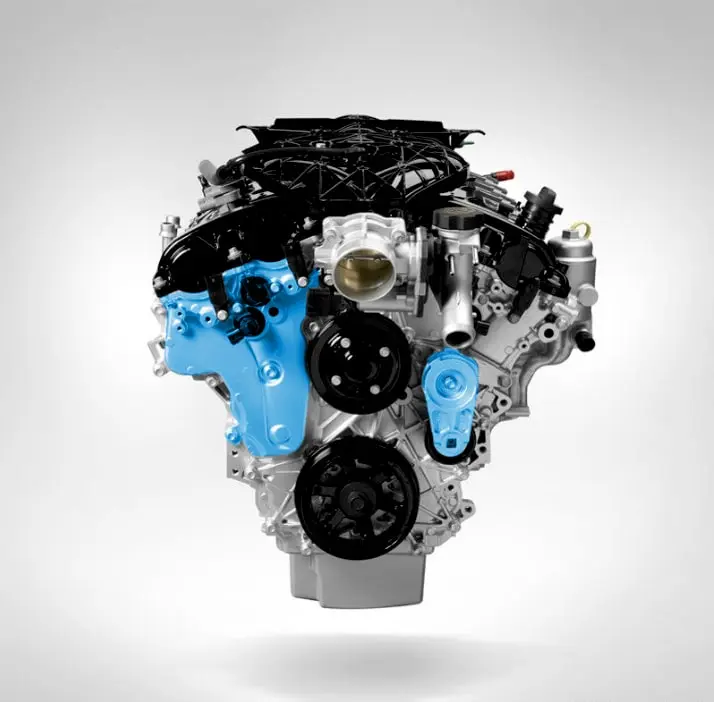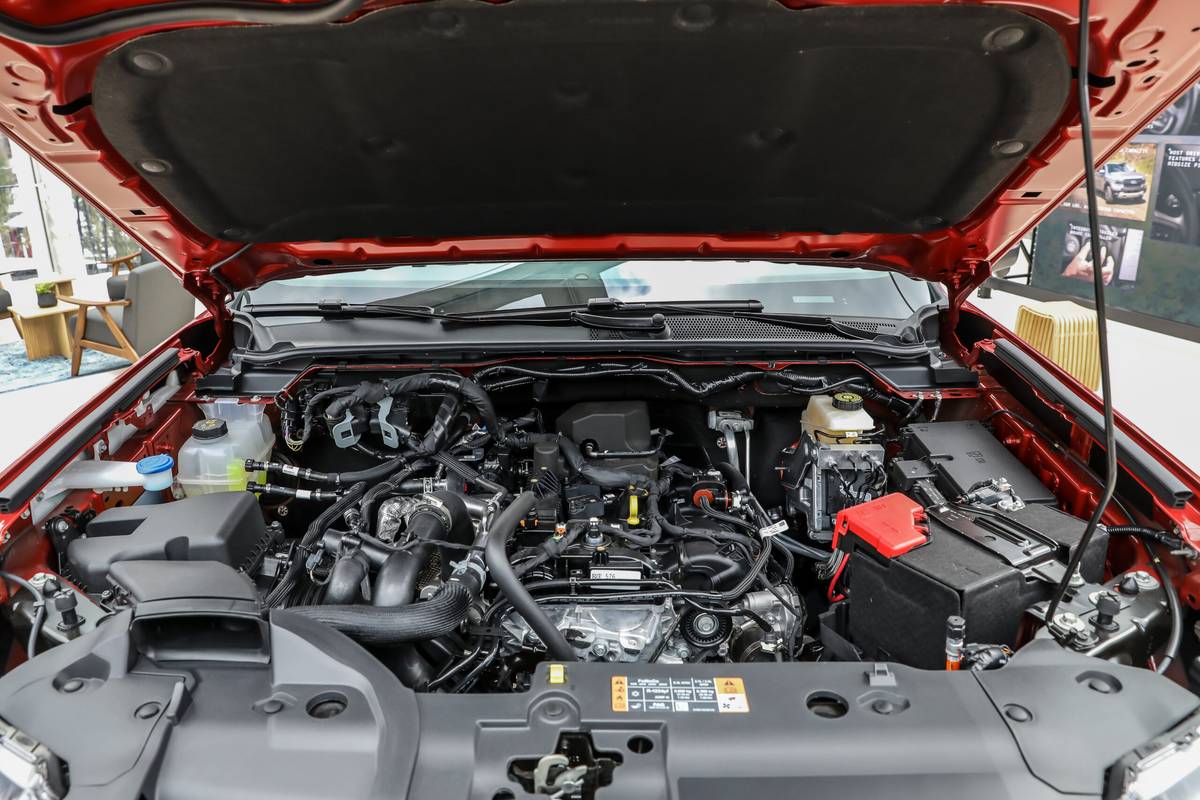Why the 2.2 Ford Ranger Engine Is a Popular Choice for Rugged and Reliable Performance
Why the 2.2 Ford Ranger Engine Is a Popular Choice for Rugged and Reliable Performance
Blog Article
What Makes an Automobile Engine Run Smoothly: Leading Tips for Ideal Care
The smooth procedure of a car engine is basic to both performance and durability, making optimum treatment an important responsibility for car owners. What particular steps should you prioritize to ensure your engine continues to be in peak problem?
Normal Oil Modifications
Among the most critical facets of vehicle maintenance is ensuring your engine obtains regular oil changes. Engine oil lubes inner components, decreases friction, and helps maintain ideal operating temperatures. Gradually, oil weakens as a result of heat, impurities, and the all-natural results of combustion, resulting in minimized efficiency and possible engine damage.
The majority of manufacturers advise changing the oil every 5,000 to 7,500 miles, but this interval can vary based upon driving conditions and oil kind. Artificial oils might permit for longer periods between adjustments. Normal oil adjustments not only boost engine efficiency yet likewise enhance fuel efficiency, as tidy oil advertises smoother operation.
Ignoring oil changes can cause sludge accumulation, which hinders circulation and can lead to severe engine issues. It is crucial to examine oil levels regularly and monitor for any kind of uncommon modifications in color or consistency, which might indicate contamination or destruction.

Maintaining Coolant Degrees
Preserving appropriate coolant degrees is vital for preventing engine overheating and making sure optimal efficiency. The coolant, commonly a blend of water and antifreeze, circulates with the engine, taking in warm and protecting against thermal anxiety. Insufficient coolant can lead to raised engine temperature levels, which may trigger severe damage or even total engine failure.
To keep optimum coolant degrees, consistently check the coolant storage tank, generally located in the engine bay. Ensure the coolant is loaded to the recommended mark, as shown in your lorry's proprietor manual. It is recommended to examine the degrees at least when a month or in the past lengthy trips, especially during severe climate condition.
If you discover that the coolant level is regularly reduced, there might be a leakage in the air conditioning system, which must be attended to immediately to stop additional problems. 2.2 ford ranger engine. Furthermore, flushing the coolant system every two to three years can help get rid of any type of built up debris and make sure effective heat exchange
Checking Air Filters

It is suggested to inspect the air filter every 12,000 to 15,000 miles, or much more regularly if driving in adverse or messy conditions. An easy visual inspection can typically disclose whether the filter is unclean or damaged. If the filter shows up stained or has visible dirt buildup, it should be changed immediately.
Utilizing a high-grade air filter designed for your specific automobile model can even more boost engine performance. Furthermore, navigate to this website some automobiles might take advantage of recyclable filters that can be cleaned and reinstalled, giving a affordable and eco-friendly option.
Inspecting Flicker Plugs
Ignition system are important elements of a car's ignition system, directly impacting engine efficiency and performance. They produce the spark that stirs up the air-fuel combination in the combustion chamber, assisting in the engine's power generation. Regular inspection of spark plugs is important for preserving ideal engine function and protecting against potential concerns.
Throughout an examination, look for signs of wear or damages, such as fractures, carbon buildup, or too much gap widening. A healthy spark plug commonly exhibits a light brown or tan shade. Dark soot or oil down payments can show inappropriate combustion, while a white or raw appearance might suggest getting too hot. Both conditions require immediate attention to stop additional engine damage.
It's advisable to examine ignition system every 30,000 miles, or as suggested in your lorry's proprietor guidebook. Furthermore, think about replacing them according to the maker's standards, as old or used trigger plugs can result in misfires, decreased fuel performance, and raised exhausts.
Tracking Tire Pressure
Guaranteeing correct tire stress is a vital aspect of car safety and performance. Under-inflated tires can result in decreased gas effectiveness, raised tire wear, and jeopardized handling. Alternatively, over-inflated tires can lower grip and enhance the risk of blowouts. Therefore, regular additional resources tracking of tire stress is important for optimum automobile operation.
Tire pressure ought to be inspected at least when a month and previously lengthy journeys. Use a reliable tire pressure scale to gauge the stress when the tires are cold, preferably prior to the lorry has been driven for at the very least three hours. Refer to the vehicle's proprietor guidebook or the placard situated on the driver's side door jamb for the manufacturer's suggested pressure degrees.
It is very important to keep in mind that tire stress can change with modifications in temperature; a decrease of 10 ° F can result in a 1-2 psi decrease in stress. Furthermore, visually evaluate tires for any type of indications of wear or damage throughout your monitoring regimen. Preserving proper tire stress not just improves vehicle safety and security however also boosts fuel performance and extends tire life, eventually adding to a smoother engine efficiency.
Conclusion
Finally, preserving a cars and truck engine's smooth operation needs thorough attention to numerous essential variables. Routine oil changes, appropriate coolant levels, tidy air view it filters, properly maintained ignition system, and ideal tire stress jointly contribute to enhanced efficiency and longevity. Following these upkeep methods not only boosts fuel effectiveness but additionally promotes a safer driving experience. Inevitably, a proactive strategy to engine treatment is necessary for making sure dependability and functionality with time. 2.2 ford ranger engine.
One of the most vital aspects of vehicle upkeep is guaranteeing your engine gets routine oil changes. Engine oil lubricates inner parts, minimizes rubbing, and helps keep optimal operating temperatures. Routine oil changes not just improve engine efficiency but likewise boost fuel performance, as tidy oil promotes smoother operation.
Not enough coolant can lead to enhanced engine temperatures, which might cause extreme damage or also total engine failure.
Report this page